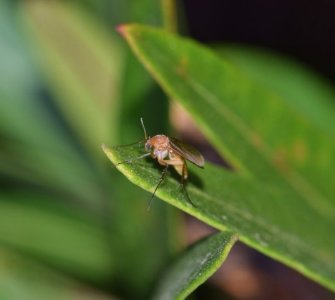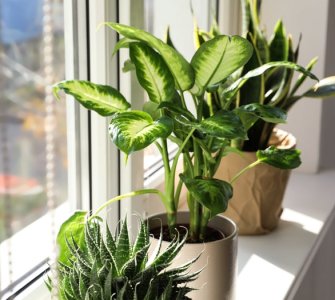If your squirrels are eating, stealing, or damaging your roses, you’re going to want to protect them. After all, roses aren’t always the easiest plant to grow – you don’t want your hard work going to waste, or your beautiful roses vanishing overnight!
To protect roses from squirrels, you can use natural preventatives placed strategically in and around the soil – such as hot peppers, garlic, moth balls, and cayenne pepper. You can also use physical deterrents placed around your roses, such as wire mesh, aluminium foil, and even spiky forks.
Which method will work best for you depends on what soil you have, your garden design, and how many squirrel invaders you currently have.
Table of Contents
What damage do squirrels do to roses?
Squirrels love to feast on succulent parts of roses. They are especially keen on young shoots and stems of freshly growing potted roses, especially if recently repotted.
Often, squirrels will bite off entire rose stems, pulling them down to get to blooms and rose hips – breaking the entire rose plant in the process. Surprisingly, squirrels might even chomp on rose leaves as they crave the moisture trapped inside. To add to this, they enjoy digging holes to expose the roots and chew at them, which coupled with stem damage might destroy a rose plant beyond repair or even hope of propagation.
In short, they can destroy your beautiful rose garden if left to their own devices!
What helps protect roses from squirrels?
There are many different methods that help to deter squirrels. However, it’s usually a good idea to stay away from commercial, store-bought repellents, as they are often both harmful to plants and the squirrels.
More often than not, they contain dangerous pesticides and synthetic chemicals. Our goal is not to kill, as there are humane ways to redirect squirrels away from roses.
Most methods that will be described roughly fall into two separate categories: taste and/or smell deterrents and physical deterrents.
Taste and smell deterrents aim to safely keep out squirrels by using foods that taste or smell foul to squirrels, making them think twice about whether they want to approach your rose in the first place and a great incentive to choose someone else’s garden as a food source.
Physical deterrents serve as a last line of defence – if the squirrel decides to dig anyway, a physical deterrent safely prevents a squirrel from ever reaching the roots or the stems. Squirrels can be especially brave and cheeky creatures, so combining protection methods of both kinds is usually recommended.
Taste and smell deterrents
Capsaicin
Capsaicin is the chemical responsible for making jalapeños and habaneros hot. Coincidentally, it deters squirrels, as well as people who hate spicy foods 🙂 Capsaicin can be found in hot pepper, cayenne pepper or red pepper flakes and there are various different solutions you can derive to keep squirrels at bay. The simplest way to keep squirrels at bay is to make a DIY hot pepper spray!
For a hot pepper spray, you will need:
- a spray bottle
- 3 litres of water
- 3 tablespoons hot pepper flakes OR 1 tablespoon tabasco sauce
Simmer your hot spice of choice in 3 litres of water for 15 minutes. Simmering infuses pepper oils into the water, making for a more potent hot pepper spray. Let the mixture cool and sit for 24 hours.
After 24 hours have passed, strain the mixture and add a few drops of natural, biodegradable dish soap and mix well. Before you apply to the entire plant, patch-test on a single rose leaf and wait for 4 days to see if the rose can handle the hot pepper spray. Transfer to a spray bottle and spray rose leaves, stems and soil around copiously every 2-3 days, reapplying after rainfall.
For an even stronger solution, boil one chopped yellow onion, one chopped jalapeño, and one tablespoon cayenne pepper in 2 litres of water for 20 minutes. Strain the solution, cool it down and spray the rose plant foliage every 3-5 days, reapplying after rainfall.
Garlic
Make a garlic spray, for which you will need:
- a spray bottle
- 2 minced garlic cloves
- 1 tablespoon olive oil
- 3 litres of water
Steep the garlic and olive oil in the water for 48 hours. After 48 hours, add a few drops of biodegradable dish soap and spray the solution in the evening, every three to five days.
Unappealing plants
To protect roses from squirrels and curb damage, consider planting plants they find unappealing among your roses. While they might look pretty to you, there are some plants squirrels hate the smell and taste of, deciding to just not mess with them altogether.
On the other hand, squirrels ADORE tulips. If you have a big squirrel problem, avoid planting tulips at all costs!!!
Some plants squirrels usually avoid are:
- yarrows
- daffodils
- dahlias
- bleeding hearts
- foxgloves
- coneflowers
- blanket flowers
- daylilies
- bee balms
Moth balls
Have leftover moth balls from your closet? Naphthalene, which serves great to keep away moths from eating fine fabrics, happens to work great to keep away squirrels too, as they hate the smell of it. Throw around a couple of moth balls in your rose garden and squirrels will not even dare to approach.
Chicken manure
Both city and country squirrels alike, for whatever reason, seem to heavily dislike the smell of chicken manure. While at the same time great for fertilising your roses occasionally, this is a great way to have your cake and eat it too.
Physical deterrents
It is good to note that, while perhaps the most effective method, physical deterrents can sometimes take away from the aesthetic appeal of the rose bush or flower bed. Also, physical deterrents work best for smaller flowers, making it ideal if your roses are still fairly young or not fully established.
Wire mesh
To protect roses from squirrels physically, use a hardware metal mesh, chicken wire or cattle fencing. Create a mesh cage around young roses. Make sure the holes in the mesh are small enough for a squirrel not to be able to squeeze through. Clip bird netting or tulle over the top of the cage with clothes pins.
Make sure to leave enough room for young roses to grow and breathe. For root protection, place the wire mesh around the roots and cover with mulch or compost to disable squirrels from digging it up. If possible, opt to put a metal fence around your rose garden, which will protect is as a whole and look more aesthetically pleasing.
Aluminium foil
Wrap the stem or a rose plant pot in aluminium foil, as squirrels hate the sound and the reflectiveness of the foil. You can also hang strips of aluminium foil from the branches of older rose plants. Simply cut strips of foil around 2-3 cm thick and 30cm long, and hang them from the branches. (Use string or simply add the strips on to nearby thorns).
Hanging baskets
For smaller or potted roses, use hanging baskets flipped upside down to keep squirrels from digging around the pot.
Flat rocks
Place heavier flat rocks near the base of your rose. This will directly prevent squirrels from digging up the roots of the rose. However, make sure they are heavy enough so that a squirrel will not be able to lift them, as they can be savvy enough to push away rocks and dig for the roots anyway.
Find the correct balance between rocks being light enough for the roots to breathe and heavy enough to not be able to be lifted by an average squirrel.
Plastic forks
An ugly solution, but one proven to work in protecting roses from squirrels. Bury plastic forks handle down in the soil of your rose plant pot. Squirrels will find the forks to spiky to get around.
Sports cones
Buy a green sports cone and cut it down the middle, so that it can wrap around the base of the rose plant. Spread a thin layer of chilli flakes outside of the cone, and add light gravel to the inside of the cone. Add another layer of chilli flakes onto the gravel and then cover the entire contraption with all-purpose compost. Onto the compost, add another layer of chilli flakes.
This weird contraption is the most aesthetically pleasing physical deterrent solution, considering the cone will not be visible once covered with compost. The cone provides a physical barrier, while multiple layers of chilli flakes act as a taste and smell deterrent. But you know what they say, if it is weird, and it works, it isn’t weird!
If you use a combination of these methods, you’ll be able to protect your roses from squirrels. Now that you know how to defend your roses from squirrels, step it up and learn how to protect your roses from aphids, using this simple DIY aphid spray recipe!



